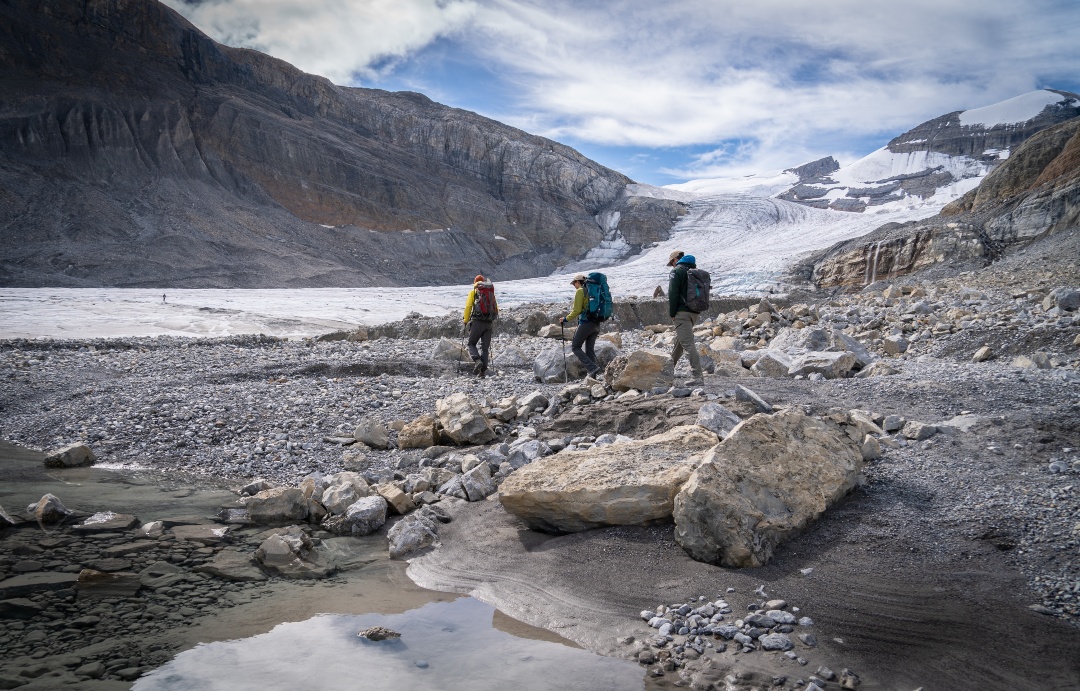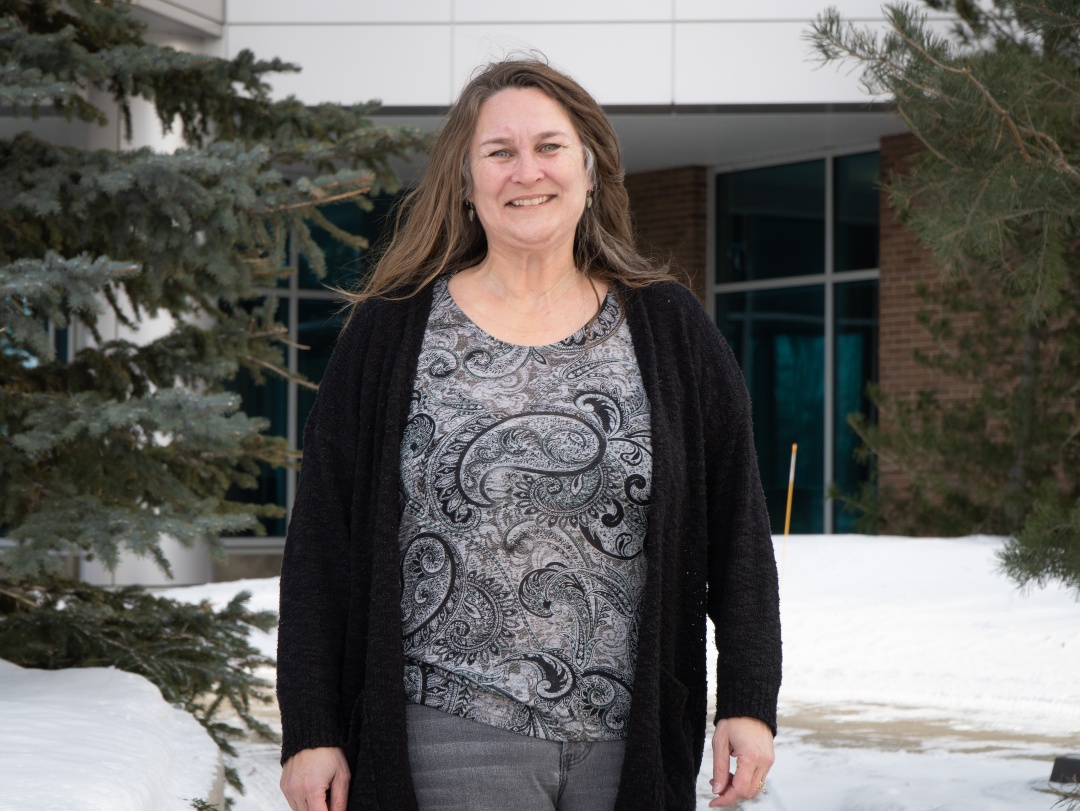
Sustainability of high-mountain water sources focus of new UNESCO Chair
Nearly four billion people worldwide depend on water from the high mountains for survival. Drinking water supplies, agriculture, power, energy, industry and surrounding ecosystems are all reliant on the ‘water towers of the Earth.’
Climate change is endangering critical mountain water sources like the Canadian Rockies snowpacks and glaciers, with potential for dire implications. To address the challenges of sustaining and managing these mountain waters, UNESCO has announced the creation of the UNESCO Chair in Mountain Water Sustainability. The chair will be hosted at the University of Calgary (UCalgary) and co-held by six international world-class water researchers, including Dr. John Pomeroy (PhD) and Dr. Corinne Schuster-Wallace (PhD) from the University of Saskatchewan (USask).
The chairholders will work collectively to improve how we forecast the impact of climate warming on water sources, develop new climate change mitigation measures, and increase the resilience of communities reliant on mountain waters. They will use a holistic approach to address the complex and interconnected environmental, economic and social issues of mountain-based systems.
But they won’t do it alone – vital to their plans are collaboration and co-creation of research with local water users and Indigenous knowledge-holders. Together, they will create networks that will observe water ecosystems and develop methods to ethically braid Indigenous and western science in pursuit of high-mountain water sustainability.

“Chairholders will have to find the regionally appropriate and problem-specific solutions and be sure not to force a one-solution-fits-all approach, but to listen to local needs and to co-develop the most appropriate solutions in each of the regions,” said Pomeroy, Canada Research Chair in Water Resources and Climate Change at USask and director of the pan-Canadian Global Water Futures (GWF) program.
“The impacts of climate change on mountain snow and ice, water and ecosystems are rapidly accelerating,” said Pomeroy. “These environments are changing even before we fully understand their coupled interactions and before we have reliable predictions of the impacts of climate change on downstream populations and how these might be managed.”
Chairholders will proactively work with local mountain-based communities and relevant stakeholders and decision-makers. The chairholders want to facilitate a paradigm shift towards transdisciplinary, community-based research that results in integrated solutions to the unique and complex water management challenges faced by each community.

“Water problems emerge at the interface of a complex relationship between the state of the natural resource, infrastructure, systemic factors such as governance structures and social norms, and individual factors such as agency, socio-economic status, ethnicity, and gender,” said Schuster-Wallace, associate professor in the Department of Geography and Planning and associate director of GWF. “The chair represents a way to bring all of this together in ways that focus on community-driven, evidence-informed equitable and sustainable water management and access solutions.”
The six chairholders come from Western Canada, Chile and Nepal:
- Dr. Kerry Black (PhD), assistant professor, Department of Civil and Sustainable Engineering, Schulich School of Engineering, University of Calgary
- Dr. James McPhee Torres (PhD), professor, Department of Civil Engineering, Universidad de Chile, Santiago, Chile
- Dr. John Pomeroy (PhD), professor, Department of Geography and Planning, University of Saskatchewan, Canmore (Chair co-lead and primary chairholder)
- Dr. Dhiraj Pradhananga (PhD), associate professor of hydrometeorology, Tribhuvan University, Kathmandu, Nepal
- Dr. Corinne Schuster-Wallace (PhD), associate professor, Department of Geography and Planning, University of Saskatchewan, Saskatoon
- Dr. Frederick Wrona (PhD), professor, University of Calgary (Chair co-lead)
“The greatest opportunity of this chair is to provide timely and actionable knowledge to mountain water-dependent communities and relevant sectors on how to build resilience and ensure the long-term sustainability of water availability and quality under an increasingly changing climate,” said Professor Frederick Wrona (PhD), Department of Biological Sciences, Faculty of Science at UCalgary.
“The chair was specifically constructed to establish a North-South America and East-West (Asia-North and South America) network of mountain-related research,” said Wrona.
Each scholar brings a distinct research focus from their geographic region to the chair, making it a diverse and transdisciplinary initiative with built-in opportunities for international impact.
“The chair will provide a unique avenue to pursue truly transdisciplinary approaches to water stewardship in mountain regions, through inclusion of community-based participatory research methodologies with a focus on knowledge translation and mobilization,” said Dr. Kerry Black (PhD), assistant professor with UCalgary’s Schulich School of Engineering. “This chair is unique in that it will foster co-development of research processes with Indigenous Nations, focused on decolonizing methodologies that respect Indigenous rights and ensure meaningful participation of Indigenous communities.”
The UNESCO Chairs Network builds on collaboration to advance training, research, and program development in higher education. It builds connections among universities, civil society, local communities, researchers and policy-makers. To learn more, visit en.ccunesco.ca.

